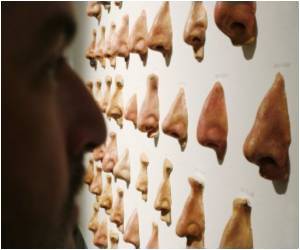
In her study, Lauren Gulbas, an assistant professor of anthropology, examined how aesthetic ideals promoted by the cosmetic surgery industry interact with local ideas about race in Caracas, where she focused on rhinoplasty, more commonly known as a "nose job." The article, titled "Embodying Racism: Race, Rhinoplasty, and Self-Esteem in Venezuela," appears in the journal Qualitative Health Research: http://qhr.sagepub.com/content/23/3/326.full.pdf+html
The study included 63 white, black or racially mixed women -- 24 had undergone rhinoplasty and 39 wanted to change their nose through rhinoplasty. All of the women wanted la nariz perfilada, or a "well-formed nose" that is tall, slender and associated with being white, which is the so-called "gold standard" of rhinoplasty. All of the black or racially mixed women with broad, flat noses linked with African heritage wanted la nariz perfilada in an effort to improve their self-esteem by looking whiter.
Racial categories in Venezuela are defined predominantly according to skin color, a flexible system made possible through mestizaje, or racial mixing. On the surface, mestizaje seems to promote equality by encouraging racial and cultural fusion of European, Indian and African ancestry, but in practice, Venezuelan national heritage prioritizes light skin and European physical features, according to Gulbas.
"Rhinoplasty is offered by physicians and interpreted by patients as a resolution to body dissatisfaction and low self-esteem," Gulbas writes, but that thinking fails to acknowledge how perceptions of the self and body are strongly tied to racial marginalization. "Patients' efforts to alter the nose reveal attempts to change not only how the body looks, but how it is lived. As a result, cosmetic surgery only acts as a stop-gap measure to heighten one's self-esteem and body image."
Source-Eurekalert














